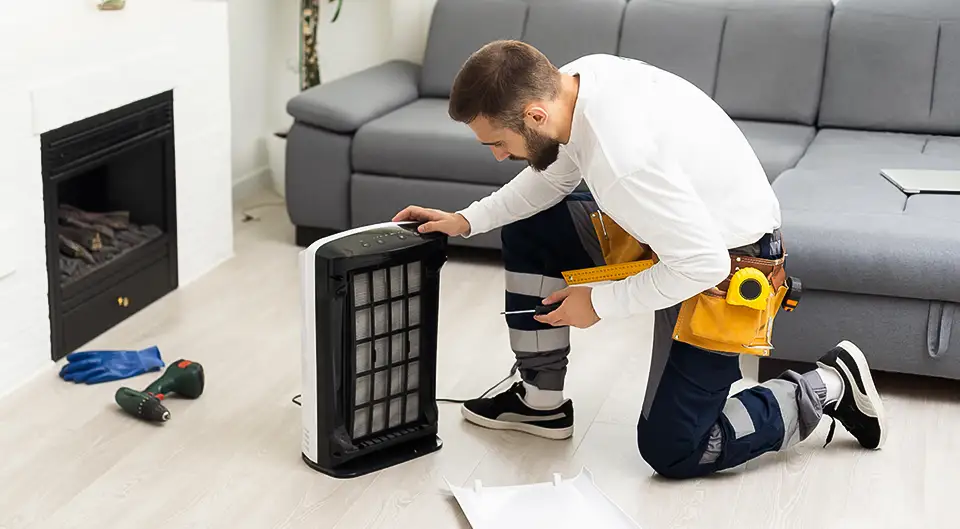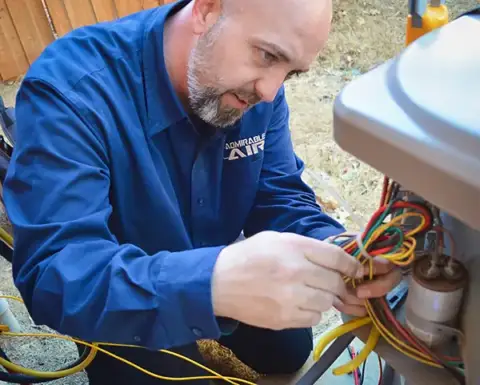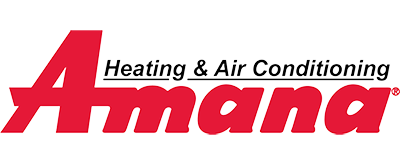Fall in the Dallas Metroplex is a time to enjoy cooler temperatures, beautiful orange-red foliage, and pumpkin spice everything. But for many homeowners, fall also marks the start of allergy season.
When sneezing, itchy eyes, and congestion take over your life, the common culprit is an increase in pollen, mold, and other allergens. These contaminants make their way into your home and trigger allergy symptoms.
If you’ve struggled with fall allergies, you might be surprised to learn that your HVAC system can be a powerful ally in helping you breathe easier during this time of year. By optimizing your HVAC system and making a few smart upgrades, you can improve your home’s air quality, reduce allergens, and enjoy a more comfortable, sneeze-free fall.
Understanding Fall Allergies
Before diving into HVAC solutions, let’s understand why allergies spike in the fall. The main offender is ragweed, a plant that releases pollen during late summer and fall. Ragweed pollen is notorious for causing allergic reactions and can travel hundreds of miles through the air, meaning even if there’s no ragweed nearby, you’re still likely to be affected.

In addition to ragweed, other allergens like mold spores, dust mites, and pet dander become more prevalent as we spend more time indoors during the cooler months. Mold thrives in damp environments, especially in basements and bathrooms.
At the same time, dust mites love to settle into fabrics like carpets, upholstery, and bedding. If you have pets, their dander (tiny flakes of skin) can mix with these allergens, creating a perfect storm for fall allergies.
Now that we know the key players let’s explore how your HVAC system can help you combat these allergens and improve your indoor air quality.
Optimal Humidity Control for Allergen Reduction
One of the biggest challenges homeowners face during the fall is managing indoor humidity. Too much moisture creates an environment where mold can thrive, while too little humidity can dry out your nasal passages, making them more susceptible to irritation from allergens like dust and pollen.
Here’s how your HVAC system can help:
Whole-Home Dehumidifiers for Mold Prevention
Your HVAC system naturally dehumidifies the air as it cools your home, but it may not always be enough to keep humidity levels in check. Mold tends to grow in areas with high humidity, and its spores can trigger allergies and asthma.
Installing a whole-home dehumidifier is an excellent way to ensure your home’s humidity stays within the optimal range of 30-50%. These dehumidifiers work in tandem with your HVAC system to remove excess moisture from the air, reducing mold growth and creating a healthier environment. With less mold, fewer spores are circulating in your home, which means fewer allergy flare-ups.
Whole-Home Humidifiers for Dry Indoor Air
On the flip side, a whole-home humidifier might be the solution if your home tends to get too dry during the fall and winter months. Dry air can irritate your respiratory system, making you more sensitive to allergens like dust mites. A humidifier adds moisture to the air, helping to balance humidity levels and alleviate irritation. This can be especially beneficial if you suffer from allergies and dry skin during the cooler months.
By controlling the humidity levels in your home, you can significantly reduce the risk of mold growth and dust mite proliferation, two of the most common triggers for indoor allergies.
Upgrading Your HVAC Filter for Better Air Quality
Upgrading your HVAC filter is one of the simplest and most effective ways to improve your home’s air quality. Most standard filters are designed to protect your HVAC system from large debris, but they aren’t always effective at filtering out smaller allergens like pollen, dust mites, and pet dander.
MERV Filters: What Homeowners Should Know
When shopping for a new filter, you’ll want to look for its MERV rating (Minimum Efficiency Reporting Value). The higher the MERV rating, the better the filter captures small particles. For homeowners with allergies, a filter with a MERV rating between 11 and 16 can make a big difference in trapping airborne allergens.
We should note that filters with very high MERV ratings (17-20) can sometimes restrict airflow, potentially putting strain on your HVAC system. If you’re unsure which filter is best for your system, contact Admirable Air so that we can help you find a filter that balances filtration and system efficiency.
HEPA Filters: High-Efficiency Air Filtration
If you’re looking for the gold standard in air filtration, a HEPA filter (High-Efficiency Particulate Air filter) might be worth considering. HEPA filters are designed to trap even the tiniest particles, including pollen, pet dander, and dust mites, making them an excellent choice for allergy sufferers.
While HEPA filters offer top-notch filtration, they may not be compatible with all HVAC systems due to the increased airflow resistance they create. At Admirable Air, we can assess your system and help you determine whether a HEPA filter is the right option for your home.

How Whole-Home Air Purifiers Work
Whole-home air purifiers use advanced filtration technologies to capture airborne particles like pollen, mold spores, dust, and pet dander. These systems often come equipped with HEPA filters or other high-efficiency filters that can trap even the tiniest allergens, ensuring that the air you breathe is as clean as possible.
A whole-home air purifier is a game-changer if you’re serious about improving indoor air quality. Unlike portable air purifiers, limited to small areas, whole-home purifiers are integrated directly into your HVAC system, ensuring that clean, filtered air is circulated throughout your home.
UV Lamps for Mold and Bacteria Control
Another option for improving indoor air quality is installing UV lamps in your HVAC system. UV lights are highly effective at neutralizing mold, bacteria, and other airborne pathogens that can trigger allergies. When placed near the coils or inside the ductwork, these lamps help sterilize the air as it passes through the system, reducing the number of harmful particles in the air.
While UV lamps won’t trap allergens like filters, they help prevent mold and bacteria from building up inside your HVAC system, keeping the air cleaner over time. This can make a significant difference for homeowners who are prone to respiratory issues during allergy season.
Smart HVAC Solutions for Allergy Relief
Technology plays a key role in making our lives easier today, and HVAC systems are no exception. Modern smart HVAC solutions allow homeowners to automate air quality management, ensuring a clean and comfortable home environment without constant manual adjustments.
Automation with IFTTT
IFTTT (If This Then That) is a popular platform allowing homeowners to create automated workflows between smart devices. For example, you can set up your air purifier to automatically turn on when outdoor pollen counts rise, ensuring that your home’s air stays clean even during peak allergy season.
Integrating IFTTT-enabled devices with your HVAC system allows you to optimize your home’s air quality without lifting a finger. This automation makes it easier to stay ahead of allergies and maintain a comfortable indoor environment throughout the fall.
Voice-Controlled Air Purifiers
Another convenient option for allergy prevention is using a voice-activated air purifier integrated with smart home systems like Amazon Alexa or Google Assistant. With a simple voice command, you can control your air purifier from anywhere in the house, making it easy to manage your air quality even when your hands are full.
Voice-controlled systems are convenient and make it easier for allergy sufferers to maintain a clean environment without the need for constant adjustments. Whether you want to schedule your air purifier to run during peak pollen times or turn it on from the comfort of your couch, voice-activated devices offer a hands-free solution for improving indoor air quality.
Routine HVAC Maintenance for Peak Efficiency and Air Quality
While upgrading filters and adding purifiers can improve your home’s air quality, nothing beats the benefits of regular HVAC maintenance. A well-maintained HVAC system operates more efficiently and provides cleaner air, which is essential for reducing allergens in your home.
Why Regular Maintenance Matters
Over time, dust, dirt, and allergens can build up inside your HVAC system, reducing efficiency and making it harder to maintain a clean indoor environment. By scheduling regular HVAC maintenance, you can keep your system running at peak performance and ensure that your home’s air remains as clean as possible.
At Admirable Air, we recommend having your HVAC system inspected and tuned at least once a year. During a maintenance visit, our technicians will clean the components, check for any issues, and adjust to optimize your system’s efficiency. This extends the life of your HVAC unit and helps reduce the number of allergens circulating in your home.
The Benefits of a Maintenance Plan

For homeowners looking for long-term peace of mind, Admirable Air offers annual maintenance plans that include seasonal tune-ups, priority service, and discounts on repairs. With a maintenance plan, you can rest assured that your HVAC system will remain in top condition year-round, providing optimal temperature control and air quality for your home.
Routine maintenance is especially important during allergy season, as a clean and well-maintained HVAC system is your first line of defense against airborne allergens. By staying on top of maintenance tasks, you can significantly reduce the risk of mold, dust, and other allergens building up inside your system.
Final Thoughts
Fall is a beautiful time of year, but for many homeowners, it’s also challenging due to seasonal allergies. Fortunately, with the right HVAC solutions, you can transform your home into a sanctuary of clean, allergen-free air.
Whether upgrading your HVAC filter, installing a whole-home air purifier, or taking advantage of smart technology, there are plenty of ways to improve your home’s indoor air quality and alleviate allergy symptoms. And with routine maintenance from Admirable Air, you’ll ensure that your system continues to provide clean, comfortable air for years to come.
If you’re ready to take control of your home’s air quality and breathe easier this fall, call Admirable Air today. Our team of HVAC experts is here to help you find the best solutions for your needs so you can enjoy the season without the sneezes!





